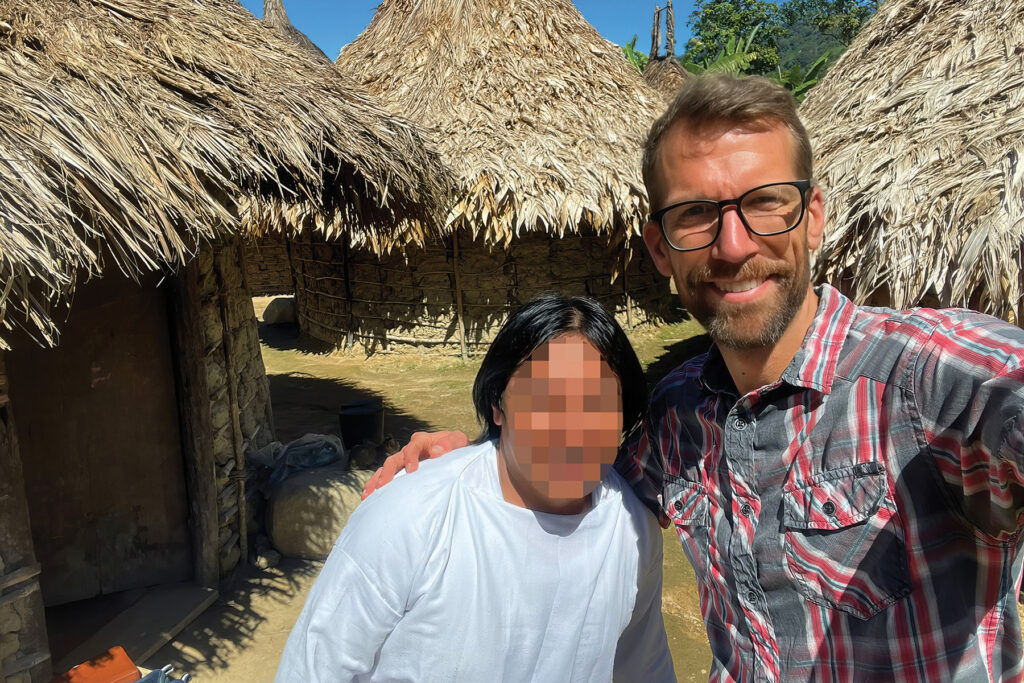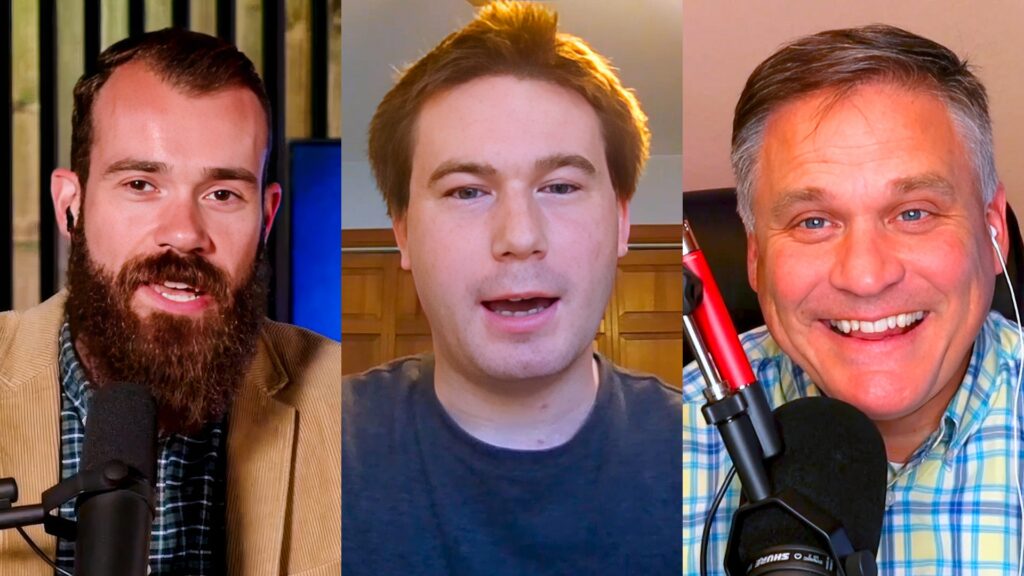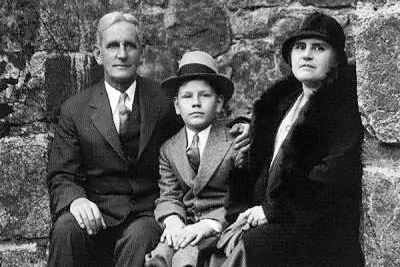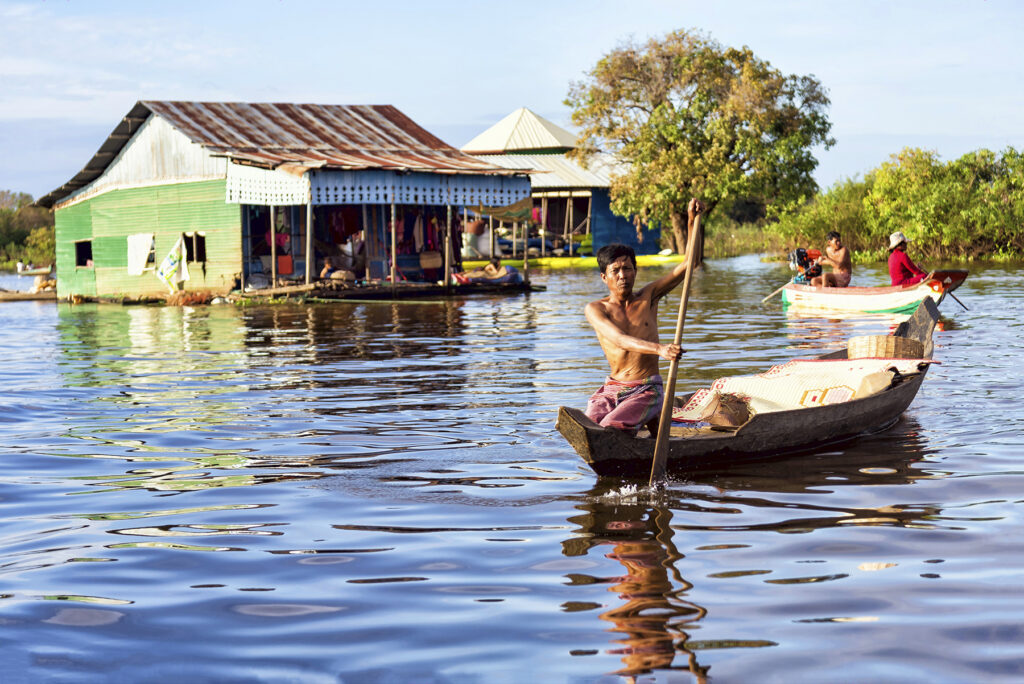As the trail crested the steep ridge, a small group of trekkers paused in the shadow of the snow-capped mountaintops and gazed down into the warm, rocky forest.
A cluster of conical mud thatched-roof huts rose from a clearing on the mountainside below—the unreached village they had set as their destination.
With renewed vigor, the seminary students scrambled down the incline, led by Colombian ministry partners Mateo and Andrés and accompanied by ABWE missionary Elliot. Upon reaching the village outskirts, they paused, their anticipation mingling with trepidation.
Access to indigenous villages in the Sierra Nevada de Santa Marta mountains of northern Colombia remains tightly restricted, granted by invitation only. Thanks to their connection with a community member, the group had received authorization to visit—provided it was granted upon arrival.
The approach of outsiders caught the attention of curious villagers, each attired in white, woven-cotton tunics traditional to the Kogi people group. Recognizing Andrés, who had guided the group up the mountain, the villagers welcomed them, ushering them into the village.
“We were in awe after seeing all the almost miraculous things that God had done to open a door for us to get into this people group.”
Elliot, ABWE missionary
“We were in awe after seeing all the almost miraculous things that God had done to open a door for us to get into this people group,” conveyed Elliot.
Later that night, as the group settled down to sleep in the mud hut they had been allocated, Mateo glanced through the darkness toward Elliot and asked the question he had been pondering: “What was your plan when you first decided that you wanted to go to the unreached?”
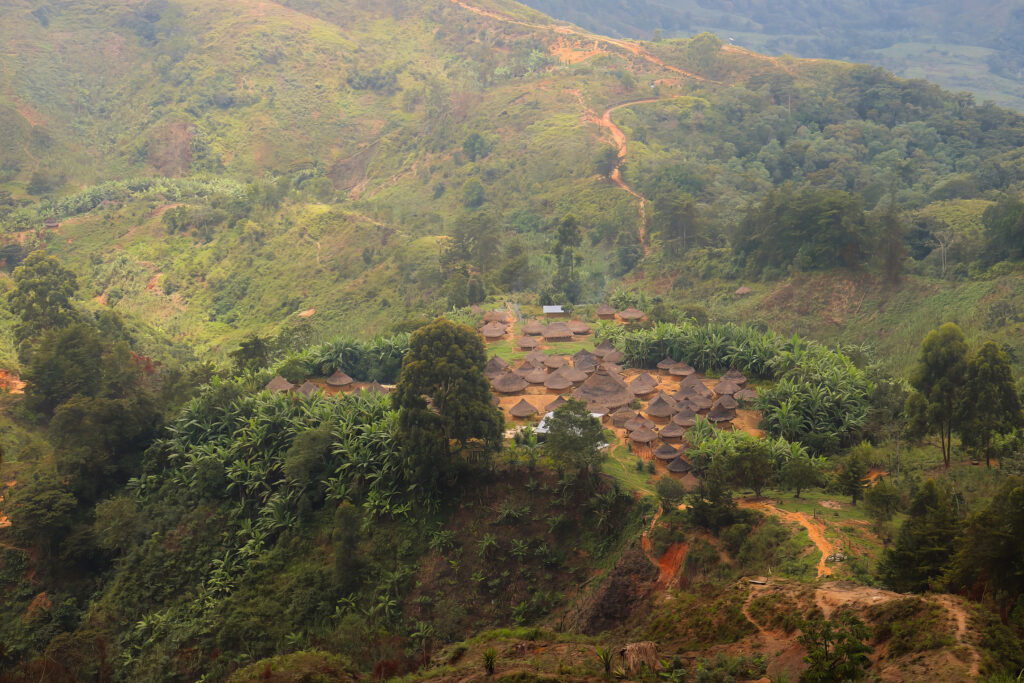
The Death of a Vision
Thirteen years prior, Elliot and Sarah landed in Bogotá, Colombia, with their children, their earthly belongings, and a burden for Colombia’s remaining unreached people groups. Although much of Colombia has access to the biblical gospel, with evangelical believers comprising nearly 11 percent of the population, ongoing violence between paramilitary organizations has isolated many remaining pockets of unreached indigenous populations from contact with gospel influences outside their remote mountainous and jungle territories.
“We wanted to take the gospel to these places that have never heard,” explained Elliot.
In preparation for planting a church among one of these unreached indigenous groups, Elliot and Sarah traveled to southern Colombia to survey potential ministry locations. Upon their return to Bogotá, however, a colleague informed them that he had been recalled to a pastorate in the US. To fill the vacancy left by his departure, he suggested that Elliot assume his position as director of the Baptist Seminary of Colombia.
“He told me, ‘You know, you could reach a lot more people and be more effective by training our local partners in the seminary,’” Elliot recalled.
Recognizing the strategic value of training future church leaders, Elliot prayerfully accepted the appointment. At the same time, he faced lingering questions about God’s purpose in this change of plans.
“It was like the death of a vision,” he shared. “At one time, I wondered, ‘Why did God call me to stay in Colombia in an area that’s predominantly reached?’”
Taking his colleague’s words to heart, Elliot began contemplating ways to instill an urgency for fulfilling the Great Commission into the seminary culture. He, with other instructors, assigned research projects on unreached people groups for each student to present in class and initiated a focused time of prayer for the unreached during Monday evening chapel services. They later constructed a thatched-roof hut on the seminary campus, christened the War Room, in which students could gather to pray for unreached indigenous groups.
Their concentrated efforts soon took root in the students’ hearts and minds.
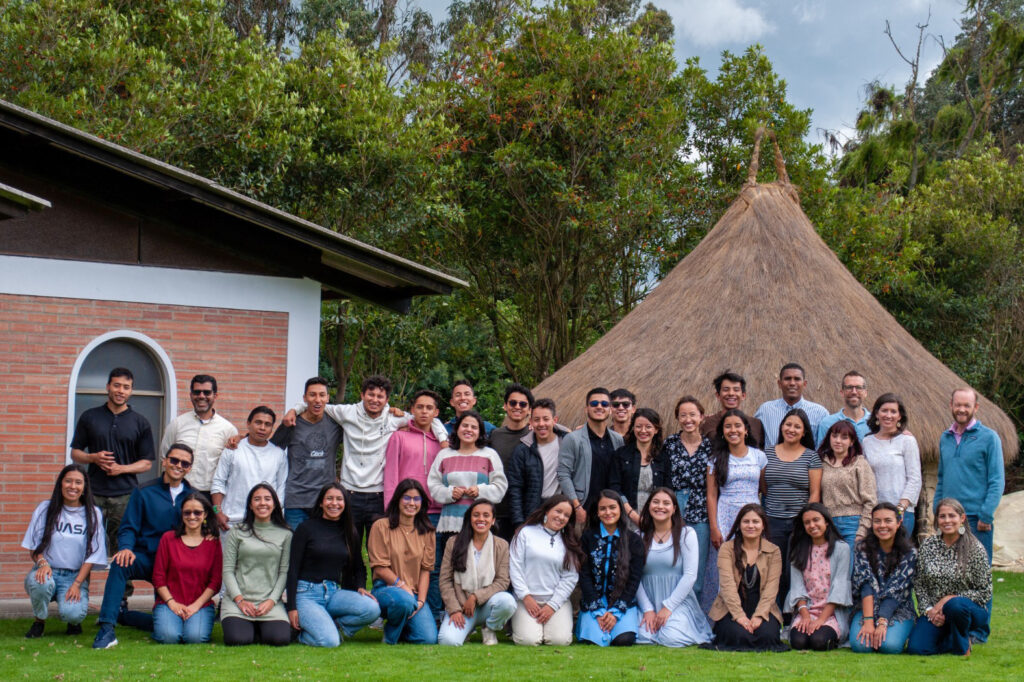
Confirming a New Calling
One young man, Mateo, was leading a devotional in his dormitory one night when, as he challenged his roommates to pursue opportunities for evangelism, he sensed the Lord impressing upon his own heart a burden to serve among the unreached.
This was not the first time that Mateo had experienced God’s direction in his life. Although he had rejected his mother’s attempts to take him to church as a young teenager, repelled by the incongruous behavior of Christians he witnessed, he had been drawn to begin reading the Bible years later. As he studied Isaiah 6, he understood that he was a sinner and needed Christ.
“Everything changed. My desire to know Jesus, the way I acted and lived. And God began to work in my heart about serving him.”
Mateo
“Everything changed,” he said. “My desire to know Jesus, the way I acted and lived. And God began to work in my heart about serving him.”
Mateo continued his personal Bible study, this time reading the book of Acts and a Spanish translation of Radical by David Platt. As he considered the example of the early church, he developed a burning desire to pursue a seminary degree.
“I decided to leave everything, my work, where I was living, everything—just to dedicate my time to studying God’s Word.”
His pastor agreed to grant him an endorsement to attend seminary, with the condition that he enroll in a Baptist seminary. Through an online search, he discovered the Baptist Seminary of Colombia, founded by ABWE missionaries in 1980 to equip future church planters and leaders through residential and online programs.
As Mateo completed coursework on missions and unreached people groups, he realized that, as a member of one of Colombia’s indigenous populations, he had family connections among several of these communities. With his training from the seminary, continued discipleship from Elliot and other professors, and a growing conviction of God’s sovereign direction, he graduated and acquired a teaching job in a school for indigenous young adults.
Aided by his attentive, caring personality, Mateo quickly formed friendships with several of the men he taught—not from the indigenous groups in southern Colombia that had been Elliot and Sarah’s initial focus but from the four unreached people groups inhabiting the mountains of Colombia’s north.
These indigenous groups—the Kogi, Wiwa, Kankuamo, and Arhuaco, of whom the former three are classified as unreached by the Joshua Project—remain largely isolated in the Sierra Madre de Santa Marta mountains. In addition to challenges like the remote location and the threat of terrorism, which often restrict travel in the region, each community exercises the authority of self-governance, with its land, culture, and religion protected under Colombian law. To travel between villages, even those inhabited by the same people group, would-be visitors must obtain an invitation to enter the community.
Mateo’s first contact with the Kogi came through a student named Juan José. Through Mateo’s faithful witness, and that of other Christian professors, Juan José placed his faith in Christ for salvation. As Mateo wrestled with how to help Juan José effectively communicate the gospel to his own people, the two men invested hours in learning to better understand the Kogi culture and worldview, a complex system of beliefs based on animism and harmony with nature.
“God began to confirm my calling to work with the unreached there in the northern parts of Colombia,” related Mateo.
At first, he primarily saw obstacles—after all, missionaries had sought to see the gospel take root in these communities for decades, yet they remained unreached.
“But then God just started opening up doors like we wouldn’t have believed through relationships,” said Elliot.
Juan José invited Mateo to visit his village, as did students from the three other indigenous groups of the mountains. In 2021, Mateo began traveling three to four times each year into these unreached regions, teaching and discipling his Christian contacts in their villages, encouraging them to withstand opposition, and sharing the gospel with others in the community. His growing network provided a springboard to travel from peripheral villages in which a few Christians live into villages deeper in the mountains currently untouched by the gospel.
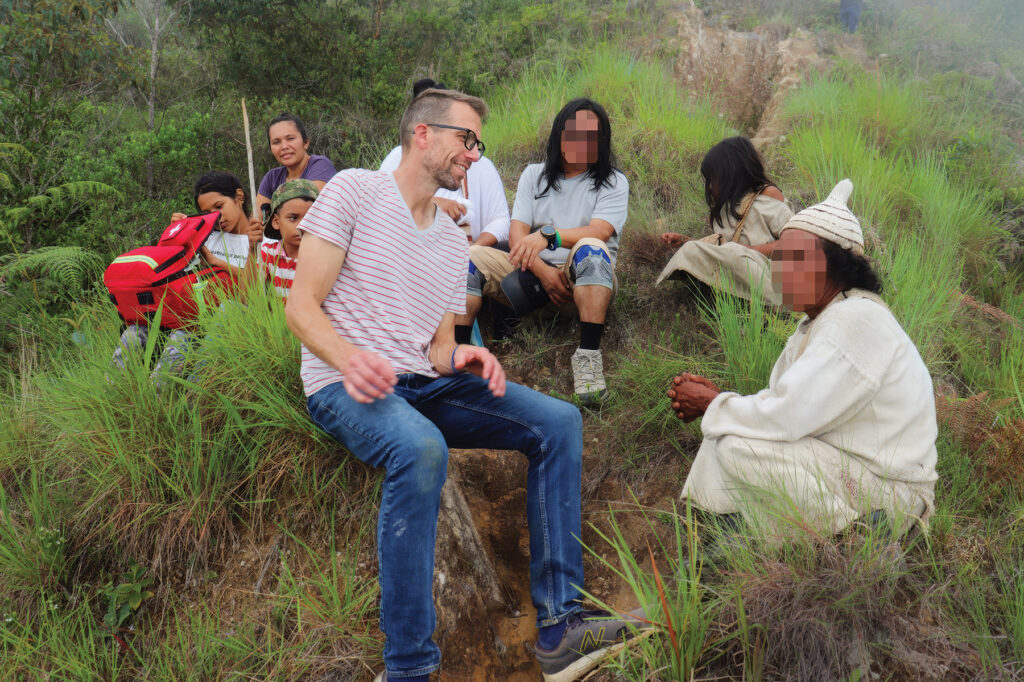
Controlling a Raging Storm
As his ministry developed, Mateo maintained close contact with Elliot, the seminary, and his church. Jointly strategizing ways to involve other future church leaders in reaching indigenous communities, they arranged for Elliot, his daughter, and a small group of students to accompany Mateo on a trip to visit four believers in a Kogi village. One of them, Esteban, had been saved and discipled through Mateo and his fellow professors at the school.
Welcoming them into the village, Esteban invited the group to pray for a sick acquaintance in a village farther up the mountain. As they paused in the community to prepare lunch, they glanced up in surprise to see a mamo, a shaman-like priest, approaching them on the path. Discovering he was conversant in Spanish, they offered him a plate of food and struck up a conversation.
“If people want to get healed, they come to me,” he said, learning of their mission. Nevertheless, he decided to accompany them farther up the mountain, describing along the way his ascribed role as mediator between his people and the world of angry spirits. His appeasement, he said, protected his community from natural disasters.
Sensing a divinely orchestrated opportunity, Elliot asked, “Can I tell you a story about somebody who can control a raging storm?”
Intrigued, the mamo agreed, listening intently as Elliot related the account of Jesus calming the storm.
“When Jesus says, ‘Peace, be still,’ the creation recognizes the voice of the Creator,” Elliot concluded.
The mamo considered his words—likely the first time that this community leader had heard this story of Jesus’ divine power—and left the group in peace.
“These are the little advances we’re praying for,” explained Elliot. “The fact that he didn’t kick us out of the community or get angry that we shared stories of Jesus—these are the first steps that often have to happen in unreached places. People start hearing biblical stories, and then God awakens something in their hearts.”
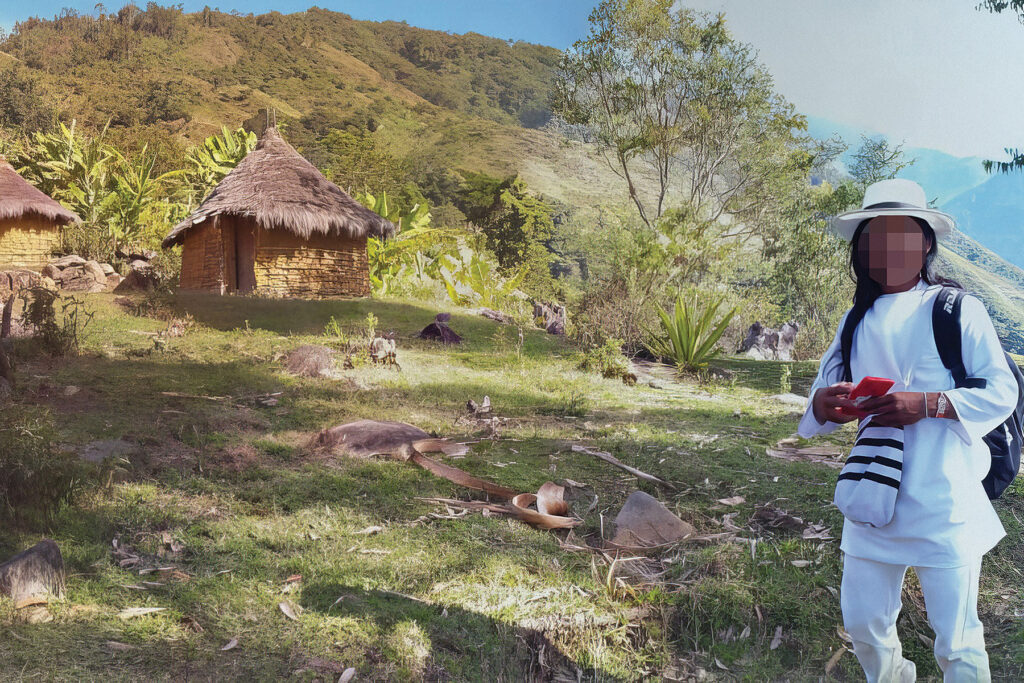
The Hut of Opposition
Back in Esteban’s village, God continued to open doors. The community leaders, deciding to honor their visitors, invited them to enter the communal meeting hut, a thatched-roof structure large enough to accommodate 200 men.
A current of cool air hit Elliot’s face as he stepped out of the hot, beating sunlight of the clearing into the dimly lit hut. Glancing around the smoke-darkened interior, he sensed the oppression of the religious rituals conducted in the hut and silently prayed that, rather than a place of opposition to the gospel, this would one day become a place where Christ is proclaimed.
In the meantime, however, the village rejects Esteban’s faithful witness.
“I’ve been punished here, multiple times,” Esteban said, pointing to two huge, rough-hewn log seats at the center of the hut. “They’ve asked me to renounce my faith.”
Summoned before his community for preaching the gospel, Esteban has endured whippings, imprisonment in a three-by-three-foot wooden structure, and other persecution. Each time he is commanded to recant, he prays, “God, give me the words to resist and be faithful to Jesus.”
Summoned before his community for preaching the gospel, Esteban has endured whippings, imprisonment in a three-by-three-foot wooden structure, and other persecution. Each time he is commanded to recant, he prays, “God, give me the words to resist and be faithful to Jesus.”
“People ask, ‘Why don’t you just flee?’” shared Elliot. “But his desire is that they would know the gospel. And he and the other indigenous believers Mateo disciples are willing to be punished time and again for the hope of a little progress; those moments of being able to share stories of Scripture.”
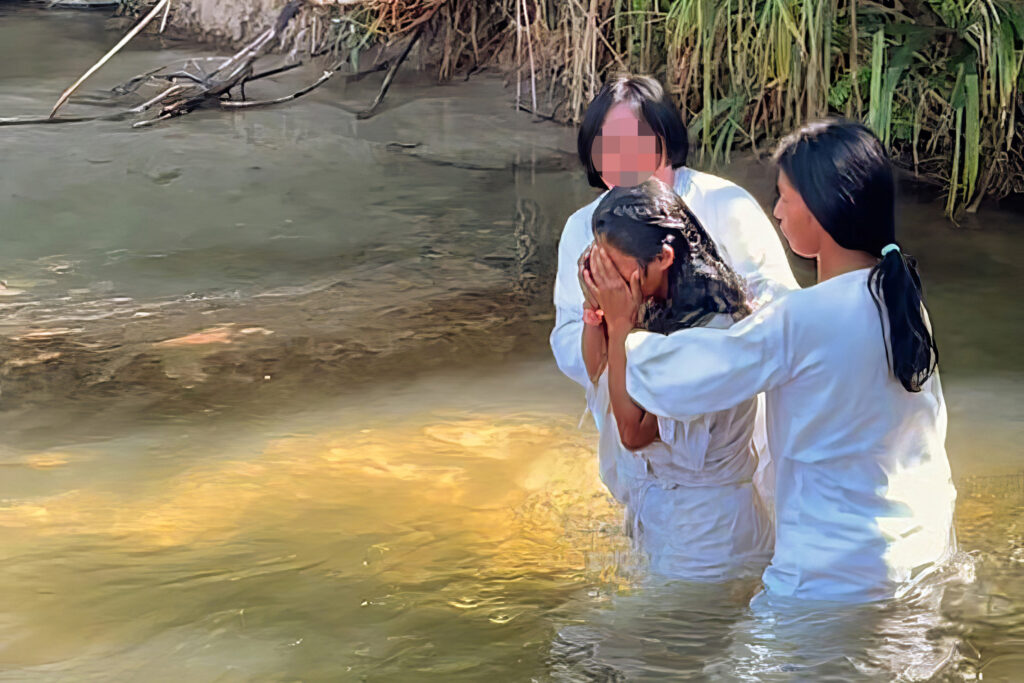
Continuing to the Next Mountain
Mateo continued traveling regularly among his network of contacts, both alone and with additional groups of seminary students. While visiting a different village deep in the mountains, he saw four people come to Christ.
Desiring to develop his missionary team, Mateo encouraged another of his students, Camilo, to seek preparation at the Baptist Seminary of Colombia. Even before his salvation, Camilo’s family had believed he was different, telling him, “You should go study and come back and teach us what you learned.” Despite living in a village that usually persecutes believers, they granted permission for him to enroll in the seminary in 2023. Camilo plans to return after graduation to serve among his people.
“These small groups of Kogi believers are the key to taking the gospel, we believe, to the larger unreached Kogi communities just over the next mountain,” explained Scott Russell, ABWE executive director for South America.
To better disciple these new believers and reach further into indigenous communities, Mateo sensed God directing his steps once again, this time to move into the mountains as a full-time gospel worker in fall 2024. He, along with Elliot and the seminary staff and students, pray for increased opportunities among the unreached.
“It’s come full circle for me,” said Elliot. “Realizing that there’s not a chance I could go up there when the violence flares up or relate as well to the culture. But it’s been amazing for me to invest in Mateo’s life, and then see him invest in others and God open up doors in some of the toughest areas.”
Elliot and Sarah recognize that reaching the world’s remaining unreached people groups will require believers from every part of God’s global church to join in his mission.
“The American church has invested in Latin America for a long time, taking steps to see people come to Christ and churches planted. This is the next step—helping them send their own missionaries to the unreached in their borders and beyond. And it’s a game changer.”
Elliot, ABWE missionary
“The American church has invested in Latin America for a long time, taking steps to see people come to Christ and churches planted. This is the next step—helping them send their own missionaries to the unreached in their borders and beyond. And it’s a game changer.”
“God had a plan,” added Scott, “and he’s reaching the unreached through the ministry of this seminary. May God be glorified among every tribe, tongue, and nation.”
